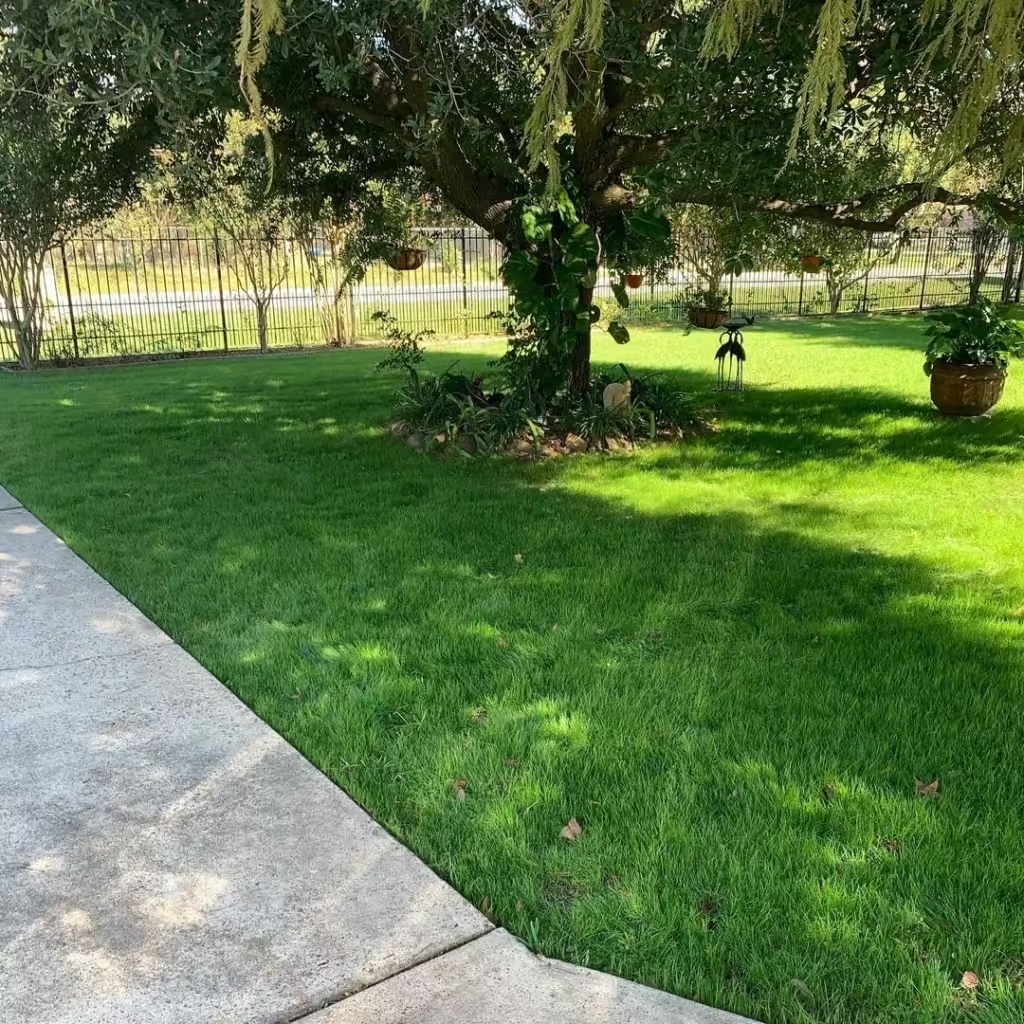 Generally, as the days get longer and grow warmer, it’s time to prepare your lawn for the challenges of summer. Rising temperatures and dry weather can take a toll on your grass, but maintaining a lush, healthy lawn is achievable with organic methods that are both kid- and pet-friendly. Here’s how to keep your lawn green, vibrant, and sustainable all summer long. Ultimately, you will learn about our organic lawn care tips list for your lawn and landscape and best environmentally friendly practices.
Generally, as the days get longer and grow warmer, it’s time to prepare your lawn for the challenges of summer. Rising temperatures and dry weather can take a toll on your grass, but maintaining a lush, healthy lawn is achievable with organic methods that are both kid- and pet-friendly. Here’s how to keep your lawn green, vibrant, and sustainable all summer long. Ultimately, you will learn about our organic lawn care tips list for your lawn and landscape and best environmentally friendly practices.
Soil Health | Organic Lawn Care Tips
To start, a soil test to understand your lawn’s nutrient needs. Amending the soil with organic compost improves its structure and fertility, helping it retain water and nutrients more effectively. Healthy soil not only supports robust plant growth but also controls erosion and resists pests and diseases.
Pro Tip: Avoid testing soil right after fertilization to get accurate results. Composting regularly enhances soil health, boosting its water-holding capacity and promoting a thriving lawn.
Organic Fertilizers
Next, use organic fertilizers derived from plant or animal sources to nourish your lawn naturally and sustainably. Options like compost tea, fish emulsion, and seaweed extract deliver essential nutrients without the harsh chemicals found in synthetic fertilizers. These natural fertilizers not only improve soil fertility but also enhance the soil’s structure, water retention, and microbial activity, which all support long-term lawn health. By enriching the soil rather than just the grass, organic fertilizers create a resilient, vibrant lawn that can better withstand seasonal changes and common lawn issues.
Application Methods
- Broadcasting: This traditional method evenly distributes granular fertilizers across your lawn, making it ideal for larger areas.
- Band Placement: For targeted nourishment, especially around shrubs or specific lawn sections, band placement delivers nutrients precisely where they’re most needed.
- Liquid Application: Liquid fertilizers, like compost tea and fish emulsion, can be sprayed directly onto the grass, allowing for quick absorption. This method is particularly effective for giving your lawn an immediate nutrient boost.
Each of these application techniques helps ensure even distribution and optimal absorption, allowing your lawn to get the full benefits of organic nutrition. By choosing the right application method and organic fertilizer for your lawn’s needs, you’re investing in a healthy, green yard that’s naturally fortified for the long haul.
 Topdressing
Topdressing
In addition, topdressing your lawn or garden with a thin layer of high-quality screened soil or leaf mold compost is one of the best ways to enhance soil health and provide a slow, steady release of nutrients. These premium organic materials improve soil structure, aiding in moisture retention and reducing compaction. By supporting a healthy ecosystem of beneficial microorganisms, high-quality topdressing promotes root health and nutrient availability, resulting in a greener, more resilient lawn that can better withstand drought, foot traffic, and seasonal changes. Makes sure not to skip this step on our organic lawn care tips list, we recommend doing this 2 times per year or at least once (Spring and fall ideally).
Weed Control
Furthermore, weeds compete with your lawn for water, sunlight, and nutrients, reducing its overall health and appearance. Hand-pull weeds or use organic herbicides made from vinegar or citrus oil to keep them in check. Corn gluten meal is an excellent natural pre-emergent that suppresses weed growth before it starts.
Pro Tip: Regular weeding and the use of organic suppressants can significantly reduce the need for chemical interventions.
Pest Management
Moreover, promote a balanced ecosystem in your yard by encouraging beneficial insects like ladybugs and predatory beetles. Planting native flowers and herbs can attract these natural pest controllers. Use natural repellents like neem oil or diatomaceous earth to manage pests without harming the environment. Furthermore, incorporating bird friendly practices will help protect your outdoor space by managing unwanted bugs, worms and other insects. Make sure to incorporate this step on our organic lawn care tips list and you’ll be sure to reduce unwanted critters in your space!
Aeration
Also, aerate your lawn to improve air and water penetration, reducing compaction and promoting a healthy root system. Regular aeration allows your lawn to absorb nutrients more efficiently, supporting stronger, deeper roots.
Pro Tip: Aerate in the early morning or late afternoon when the soil is slightly moist for the best results.
Compost Application
Another key point, top-dress your lawn with compost to provide slow-release nutrients that improve soil health and encourage beneficial microorganisms. Compost breaks down organic matter in the soil, enhancing its structure and fertility.
Pro Tip: Spread compost evenly with a rake, ensuring it integrates well with the existing soil.
Avoiding Chemical Use
Refrain from using chemicals that can harm beneficial organisms in your soil. Stick to organic methods to maintain a balanced ecosystem and support the health of your space and environment.
Pet-Safe Practices
In addition, another reason to use organic lawn care products is that they are safe for pets and children. This ensures that your family can enjoy the lawn without exposure to harmful chemicals.
Pro Tip: Always check labels for pet-friendly certification when selecting lawn care products.
 Natural Mulching
Natural Mulching
Moreover, apply organic mulch around garden beds and trees to retain water, reduce weeds, and enrich the soil. Materials like compost, dry leaves, wood chips, or even newspaper can serve as effective mulch. This step can actually save you money over time, less watering and additional need for constant fertilization.
Conclusion | Organic Lawn Care Tips
Ultimately, adopting organic lawn care practices keeps your lawn healthy throughout the seasons while also supporting a sustainable environment. Essentially, these methods are safe for your family and pets, and they help reduce your environmental footprint.
https://www.youtube.com/watch?v=SAAmBAuhMbg
Ready to take your lawn care to the next level? Implement these tips for a lush, eco-friendly lawn all summer long. Don’t know where to start? Ask about our property cleanup service by visiting us here or contact us for professional services!
If you found these tips helpful, share this blog and check out our other blogs for more gardening advice!

 Topdressing
Topdressing
 Natural Mulching
Natural Mulching

